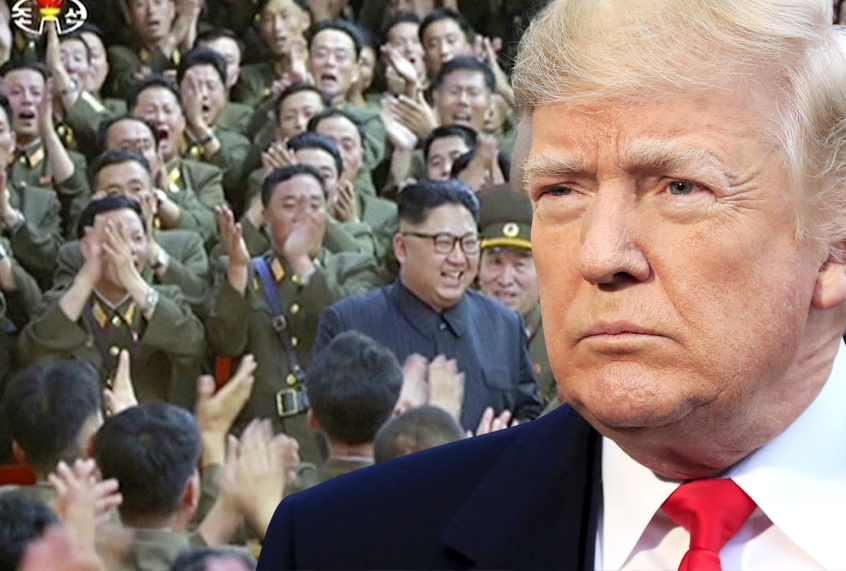It’s a twist to U.S.–North Korea tensions that few saw coming: just as the rhetorical heat has been ratcheting up between the two nuclear nation-states, North Korean leader Kim Jong Un has invited U.S. President Donald Trump to a personal meeting. In return, Trump accepted the invitation.
Reportedly, the two will meet by May 2018.
Chung Eui-yong, the South Korean official who delivered the news on Thursday, told reporters that Kim Jong Un is “committed to denuclearization” and that North Korea will refrain from any further nuclear missile tests. He also said that Kim Jong Un “expressed his eagerness to meet President Trump as soon as possible.”
The White House has confirmed that Trump accepted his invitation.
“President Trump greatly appreciates the nice words of the South Korean delegation and [South Korean] President Moon,” White House press secretary Sarah Sanders said in the statement, according to CNN. “He will accept the invitation to meet with Kim Jong Un at a place and time to be determined. We look forward to the denuclearization of North Korea. In the meantime, all sanctions and maximum pressure must remain, she said.
Trump tweeted there will be no nuclear tests by North Korea “during this period of time.”
Kim Jong Un talked about denuclearization with the South Korean Representatives, not just a freeze. Also, no missile testing by North Korea during this period of time. Great progress being made but sanctions will remain until an agreement is reached. Meeting being planned!
— Donald J. Trump (@realDonaldTrump) March 9, 2018
This news comes after South Korea met with North Korea this week, for the first time since Kim Jong Un assumed power in 2011. According to CNN, the meeting led to plans for an April summit in which Kim Jon Un and South Korean President Moon Jae-in will meet in the demilitarized zone.
While North Korea’s sudden invitation is a bright sign in rocky relations between North Korea and the United States, it is unclear if anything will come of the meeting of the minds. North Korea has promised to suspend its nuclear program before, and has failed to keep its promise. In 2012, the Obama administration forged the “Leap Day” deal, in which North Korea promised to halt operations at its Yongbyon nuclear reactor. One month later, North Korea threatened to launch a satellite, which some in the west interpreted as provocation.
Alex Bell, the Senior Policy Director at the Center for Arms Control & Non-Proliferation, told Salon it was wise to remain cautious.
“There’s not a lot of reason to trust the North Koreans based on our previous experiences with them,” said Bell, who was also the Director for Strategic Outreach in the Office of the Under Secretary for Arms Control and International Security at the State Department under the Obama Administration.
Indeed, sources have reportedly alluded to CNN reporters that there may be an ulterior motive regarding Kim Jong Un’s invitation.
“The trucks coming from China have gone to almost none and it’s going to have a negative effect on North Korea’s economy in the coming months and years if the sanctions continue,” CNN’s Will Ripley said. “There’s also the messaging from President Trump that he would be very willing to move to a military option, an attack on North Korea, if diplomacy doesn’t work.”
Ripley said sources told him Kim Jong Un is “taking a page from the Trump playbook.”
Of course, there’s only way way to find out.
“There is no way to know if this is a real and honest path to denuclearization of the Korean peninsula unless we try,” Bell told Salon.
If Pyongyang is serious about denuclearization, the process to obtaining a deal will be complicated and tedious.
“This is highly technical if we are actually talking about dismantling the North Korean nuclear program,” Bell added. “It would be the Iran deal times one hundred.”

